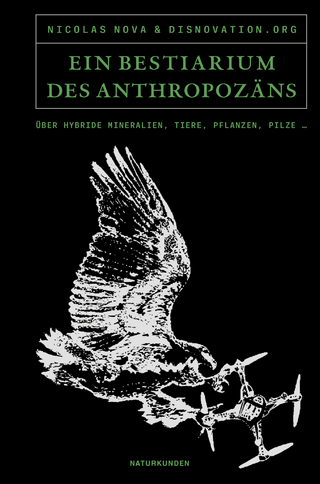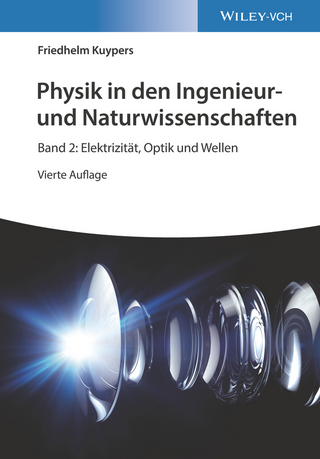
The Nuclear Envelope
Humana Press Inc. (Verlag)
978-1-4939-3528-4 (ISBN)
This volume provides a wide range
of protocols used in studying the nuclear envelope, with special attention to
the experimental adjustments that may be required to successfully investigate
this complex organelle in cells from various organisms. The Nuclear Envelope:
Methods and Protocols is divided into five sections: Part I – Nuclear Envelope
Isolation; Part II – Nuclear Envelope Protein Interactions, Localization, and
Dynamics; Part III – Nuclear Envelope Interactions with the Cytoskeleton; Part
IV – Nuclear Envelope-Chromatin Interactions; and Part V – Nucleo-Cytoplasmic
Transport. Many of the modifications discussed in this book have only been
circulated within laboratories that have conducted research in this field for
many years. Written in the highly successful Methods in Molecular Biology
series format, chapters include introductions to their respective topics, lists
of the necessary materials and reagents, step-by-step, readily reproducible
laboratory protocols, and tips on troubleshooting and avoiding known pitfalls.
Cutting edge and thorough, The Nuclear Envelope: Methods and Protocols is a timely resource for researchers who have joined this dynamic and rapidly growing field.
Isolation, Proteomic Analysis and Microscopy Confirmation of the Liver Nuclear Envelope Proteome.- Exploring the Protein Composition of the Plant Nuclear Envelope.- High Efficiency Isolation of Nuclear Envelope Protein Complexes from Trypanosomes.- Super Resolution Microscopy of the Nuclear Envelope and Associated Proteins.- Analyses of the Dynamic Properties of Nuclear Lamins by Fluorescence Recovery after Photobleaching (FRAP) and Fluorescence Correlation Spectroscopy (FCS).- Probing Protein Distribution Along the Nuclear Envelope In Vivo by Using Single-Point FRAP.- The Use of 2-Photon FLIM/FRET to Study Protein Interactions during Nuclear Envelope Fusion In Vivo and In Vitro.- Identifying Protein-Protein Associations at the Nuclear Envelope with BioID.- In Situ Detection of Interactions between Nuclear Envelope Proteins and Partners.- Methods for Single-Cell Pulse-Chase Analysis of Nuclear Components.- Analysis of Nuclear Lamina Proteins in Myoblast Differentiation by FunctionalComplementation.- Analysis of Meiotic Telomere Behavior in the Mouse.- Identification and Validation of Putative Nesprin Variants.- Detection of Diverse and High Molecular Weight Nesprin-1 and Nesprin-2 Isoforms Using Western Blotting.- The Use of Polyacrylamide Hydrogels to Study the Effects of Matrix Stiffness on Nuclear Envelope Properties.- Cell Microharpooning to Study Nucleo-Cytoskeletal Coupling.- Wound Healing Assays to Study Mechanisms of Nuclear Movement in Fibroblasts and Myoblasts.- Methods for Assessing Nuclear Rotation and Nuclear Positioning in Developing Skeletal Muscle Cells.- Imaging Approaches to Investigate Myonuclear Positioning in Drosophila.- Mapping Nuclear Lamin-Genome Interactions by Chromatin Immunoprecipitation of Nuclear Lamins.- Lamin ChIP from Chromatin Prepared by Micrococcal Nuclease Digestion.- DamID Analysis of Nuclear Organization in Caenorhabditis elegans.- The Application of DamID to Identify Peripheral Gene Sequences in Differentiated and PrimaryCells.- Visualizing the Spatial Relationship of the Genome with the Nuclear Envelope Using Fluorescence in situ Hybridization.- Visualization of Genomic Loci in Living Cells with a Fluorescent CRISPR/Cas9 System.- Methods to Monitor DNA Repair Defects and Genomic Instability in the Context of a Disrupted Nuclear Lamina.- High Resolution Scanning Electron Microscopy and Immuno-Gold Labeling of the Nuclear Lamina and Nuclear Pore Complex.- An In Vitro Assay to Study Targeting of Membrane Proteins to the Inner Nuclear Membrane.- Nuclear Protein Transport in Digitonin Permeabilized Cells.- Analysis of CRM1-Dependent Nuclear Export in Permeabilized Cells.- SPEED Microscopy and Its Application in Nucleocytoplasmic Transport.
| Erscheinungsdatum | 08.10.2016 |
|---|---|
| Reihe/Serie | Methods in Molecular Biology ; 1411 |
| Zusatzinfo | 77 Illustrations, color; 26 Illustrations, black and white; XIV, 523 p. 103 illus., 77 illus. in color. |
| Verlagsort | Totowa, NJ |
| Sprache | englisch |
| Maße | 178 x 254 mm |
| Themenwelt | Naturwissenschaften ► Biologie ► Allgemeines / Lexika |
| Naturwissenschaften ► Biologie ► Genetik / Molekularbiologie | |
| Naturwissenschaften ► Biologie ► Mikrobiologie / Immunologie | |
| Naturwissenschaften ► Biologie ► Zellbiologie | |
| Schlagworte | cellular organelles • Cytoskeleton • gene regulation • membrane-spanning regions • Nuclear envelope • nuclear pore complex • structural and signaling networks • transmembrane proteins |
| ISBN-10 | 1-4939-3528-3 / 1493935283 |
| ISBN-13 | 978-1-4939-3528-4 / 9781493935284 |
| Zustand | Neuware |
| Haben Sie eine Frage zum Produkt? |
aus dem Bereich


